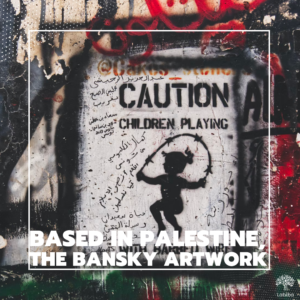This article will deal with the debates and criticism created between the three most prominent members of the “New Historians”. Since these historians are mainly the ones dealing with the historical accuracy of the events of the previous century, reading their books somehow leaves readers confused about which version of the events is true. Ideally, one shall read the work of all of them and compare their work based on which version has the most reliable evidence. However, because their findings can be very different, this article will try to briefly explain how to navigate in finding the truth in their research.
The New Historians began around the 1980s, focusing on exposing the truth behind the ongoing conflict between Israel and Palestine. Their main goal is to use history to showcase the importance of peace between the two states by using arguments that separate them from other historians who are dealing with the same question. In particular:
- They blame Israel as well for preventing peace instead of arguing that only the Arabs are to blame;
- They claim that Palestinian refugees were chased instead of freely deciding to flee their homes;
- They claim that Britain tried to impede the establishment of the Palestinian State and not the establishment of the Jewish state;
- They affirm that Israel had a military advantage of power over the Arabs and not the contrary as it was previously argued;
- They also claim that the Arabs were divided and that there was no common plan to destroy Israel.
We will deal with the three most prominent historians because they are the ones that receive the most criticism, as they are also the ones that are already well known by the general public. Even though they all have the same goals, it is interesting to see how polarizing their views and approaches are.
Benny Morris
Morris can be considered the original New Historian, and one of the best known Israeli Historians. Due to that, there was much criticism directed at him.
- On the one hand, he is praised for the objective presentation of the events especially concerning the 1958 exodus of the Palestinians.
- On the other hand, his fellow New Historians often characterize him as biased and pro-Israeli.
- He is known for using more Israeli sources rather than Arab sources.
- He has been criticized for hiding parts of the truth, distortion, and withholding evidence.
Ilan Pappe
- Morris characterizes him as “sloppy” and claims that he is not serious in his research.
- He is often criticized for not having any real evidence in the claims he is making.
- Along with that, he is known to only use sources that suit his arguments and the version of the events that fit in his arguments.
- Criticized for ignoring sources that contradict his claims, making him lose the vital point of historiography which includes presenting arguments from both sides.
Avi Shlaim
- Shlaim is not heavily criticized for his use of sources but for the fact that his work is considered biased by his anti-Israeli sentiments and pro-Arab bias.
So which book should you read if you want the closest version to the truth?
Out of the three, Morris is the best-established historian which gives him more credibility. His pro-Israeli bias can be beneficial as this can give more reliability to all the evidence he provides in support of the Palestinians.
Pappe is also very famous and well established. Perhaps, while studying his work one has to be extra careful with the sources he is using and question some of the bold claims that made him famous.
Shlaim can be useful to read just like Morris. Every argument he makes in favour of Israel can be viewed as a more objective viewpoint.
To have a better idea however of what happened in the ongoing conflict between Israel and Palestine, one should read as many studies as possible, that give a polarizing account of the events. Nevertheless, what is true for all three historians, and in fact for all the New Historians, is that their work is undoubtedly retelling the past narrative by shedding light on hidden parts of history and aiming at bringing peace. To sum up, as all of their conclusions are rather more political than historical, one should study the evidence that is being provided by them and not necessarily their remarks on them.
Lydia Alaiadi
Sources:
The criticism of all three historians was gathered and confirmed by all the three following sources.
Shapira, Anita, and Ora Wiskind-Elper. “Politics and Collective Memory: The Debate over the ‘New Historians’ in Israel.” History and Memory 7, no. 1 (1995): 9–40. http://www.jstor.org/stable/25618678.
Caplan, Neil. Review of The “New Historians,” by Ilan Pappe and Benny Morris. Journal of Palestine Studies 24, no. 4 (1995): 96–103. https://doi.org/10.2307/2537762.
Shlaim, Avi. “The War of the Israeli Historians”. Oxford University (2004):. 59 161–167.




